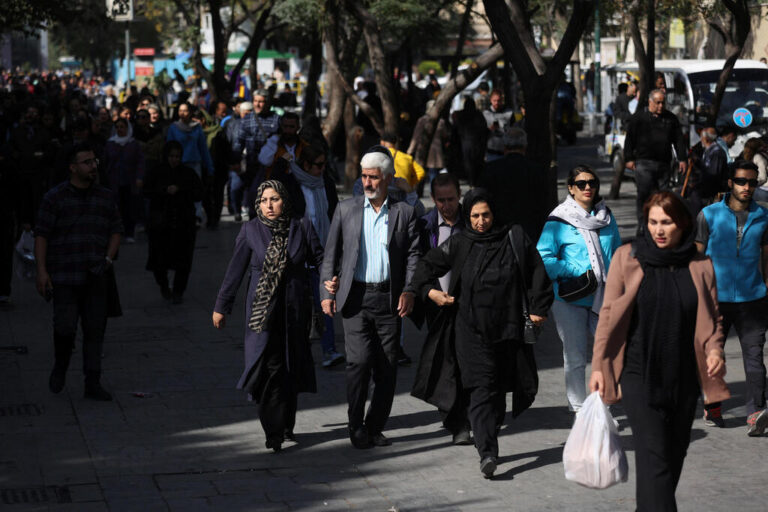Identity Politics: A Perspective on Race and Privilege Today
Understanding Identity Politics: Race and Privilege in Today’s Context
Identity politics is a hot-button topic, igniting discussions that often lead to heated debates. Whether you’re scrolling through social media, watching the news, or chatting with friends, you’re likely to encounter the intricacies of this term. But what does identity politics really mean, especially when we consider the lenses of race and privilege? Is it all just talking points, or do these concepts hold real significance in our everyday lives?
In a world that is continuously evolving, the notions of identity, belonging, and power dynamics are more relevant than ever. In this article, we’ll embark on a journey through the complexities of identity politics, focusing on race and privilege. Prepare for an engaging exploration that aims to unearth the intricate layers of this contemporary issue!
What is Identity Politics?
Before we dive deeper, let’s make sure we’re on the same page. So, what exactly is identity politics? At its core, identity politics refers to the ways in which different social identities—like race, ethnicity, gender, sexual orientation, and religious beliefs—shape our political affiliations and expressions. Members of specific groups often advocate for their collective interests, seeking recognition and equality in the broader societal landscape.
Now, you might be wondering, “What’s the big deal?” Well, the crux of the issue lies in how these identities affect power structures. Identity politics can serve as a means for marginalized groups to amplify their voices and fight systemic injustices. Yet, it also has its critics, who argue it can lead to divisiveness rather than unity.
The Race Factor: Understanding Intersectionality
When we talk about identity politics, the conversation often zooms in on race. In a multicultural society, understanding how race overlaps with other identities is essential. Here comes the term “intersectionality.” Coined by the legal scholar Kimberlé Crenshaw, intersectionality posits that individuals experience multiple overlapping identities that shape their social experiences.
For example, consider a Black woman navigating both racial and gender discrimination. Her experiences are not solely a product of her race or her gender but rather a combination of the two. This layered approach provides richer insight into how systemic inequalities manifest in the lives of individuals.
Take a moment to reflect: How might intersectionality play out in your own life or in the encounters of those around you?
The Privilege Conversation: What Is It and Why Does It Matter?
Right next to race is the concept of privilege—a notion that sparks discussion and often discomfort. Privilege refers to the advantages certain groups enjoy in society, often without any effort on their part simply because of their identity.
Here are some key points to make sense of privilege:
Think of privilege as a game of Monopoly. Players with more resources can negotiate better deals, buy properties, and ultimately win the game more easily. Meanwhile, others may have to work much harder, and some can’t even afford to play.
The Complications of Identity Politics: A Double-Edged Sword
The beauty of identity politics lies in its ability to advocate for underrepresented voices, but it can also create rifts. Some critics argue that an overemphasis on identity may lead to a factional society, where people become siloed within their groups.
So, how do we balance these complexities? Here are some ideas:
-
Promote Inclusivity: It’s vital to foster dialogues that include all voices, even those that may not align perfectly with our own. Shared understanding can pave the way for collective action.
-
Focus on Common Goals: While identities matter, they shouldn’t overshadow the shared challenges society faces—like poverty, healthcare, and education. Finding common ground can unite disparate groups.
-
Encourage Self-Reflection: Individuals should engage in self-reflection about their own identities and how they interact with societal structures. This process can help individuals understand the broader implications of their lived experiences.
The Current Landscape: Race, Privilege, and Activism Today
As we navigate the current social and political landscape, it’s impossible to ignore the significant role that identity politics plays in shaping public discourse. Today, conversations surrounding racial justice—from the Black Lives Matter movement to discussions about systemic racism in various institutions—are at the forefront.
In recent years, the idea of white privilege has gained traction, prompting broader discussions on race in America. While the concept can be challenging to confront, it sits in stark contrast to the lived experiences of people of color. Acknowledging white privilege isn’t about assigning blame; instead, it’s a call for awareness and accountability.
When people talk about these concepts, it can sometimes feel like stepping on eggshells. But let’s ask: should we shy away from the conversation out of fear of discomfort, or should we dive in, embracing the messiness as a pathway to growth?
The Role of Allyship
With all this talk about race and privilege, what role does allyship play? Being an ally means advocating for marginalized communities, often as a result of understanding one’s own privilege. It requires educating oneself, using one’s voice to elevate others, and addressing injustices, even when it feels uncomfortable.
In the realm of social justice, allyship can look like:
In Practice:
Being an ally isn’t a badge of honor to wear; it’s an ongoing responsibility that requires introspection and active involvement.
The Future of Identity Politics: Looking Ahead
What lies ahead for identity politics, particularly concerning race and privilege? As conversations expand and evolve, we may see movements that further challenge systemic injustices. The voices of the marginalized, empowered by technology and social networks, can create waves of change at an unprecedented scale.
However, navigating this evolving landscape requires an openness to dialogue and a commitment to understanding our intersecting identities. In an age where the world can seem increasingly polarized, it’s crucial to approach identity politics with empathy.
Ultimately, the key is to embrace complexity. Identifying and advocating for our communities doesn’t have to come at the expense of understanding and supporting others. We can simultaneously celebrate our unique identities while working toward common societal goals.
Conclusion
Identity politics is an ever-changing tapestry woven from threads of race, privilege, and social justice. While it can be a source of division, it also offers opportunities for understanding, growth, and solidarity. As society progresses, it’s vital to keep the conversation alive, balancing our personal identities with our shared human experiences.
The road ahead may be fraught with challenges, but by engaging in thoughtful dialogue and action, we can foster a more inclusive world. After all, understanding who we are and how we relate to others can ultimately help all of us navigate this complex landscape of identity politics.
FAQs
-
What does identity politics refer to?
Identity politics involves the political focus on the interests and concerns of specific social groups, often based on shared characteristics like race, gender, or sexuality. -
How does intersectionality influence identity politics?
Intersectionality explains how various aspects of a person’s identity, such as race and gender, overlap and contribute to unique experiences of discrimination or privilege. -
What is white privilege?
White privilege refers to the societal advantages that white individuals experience based on their race, which are often unseen and unmerited.
-
Why is allyship important in identity politics?
Allyship fosters solidarity and support for marginalized groups. Allies use their privilege to amplify underrepresented voices and challenge systemic injustices. -
Can identity politics lead to division?
While identity politics can emphasize group differences, it can also promote awareness and understanding. The key lies in finding common ground and fostering inclusive dialogues.







